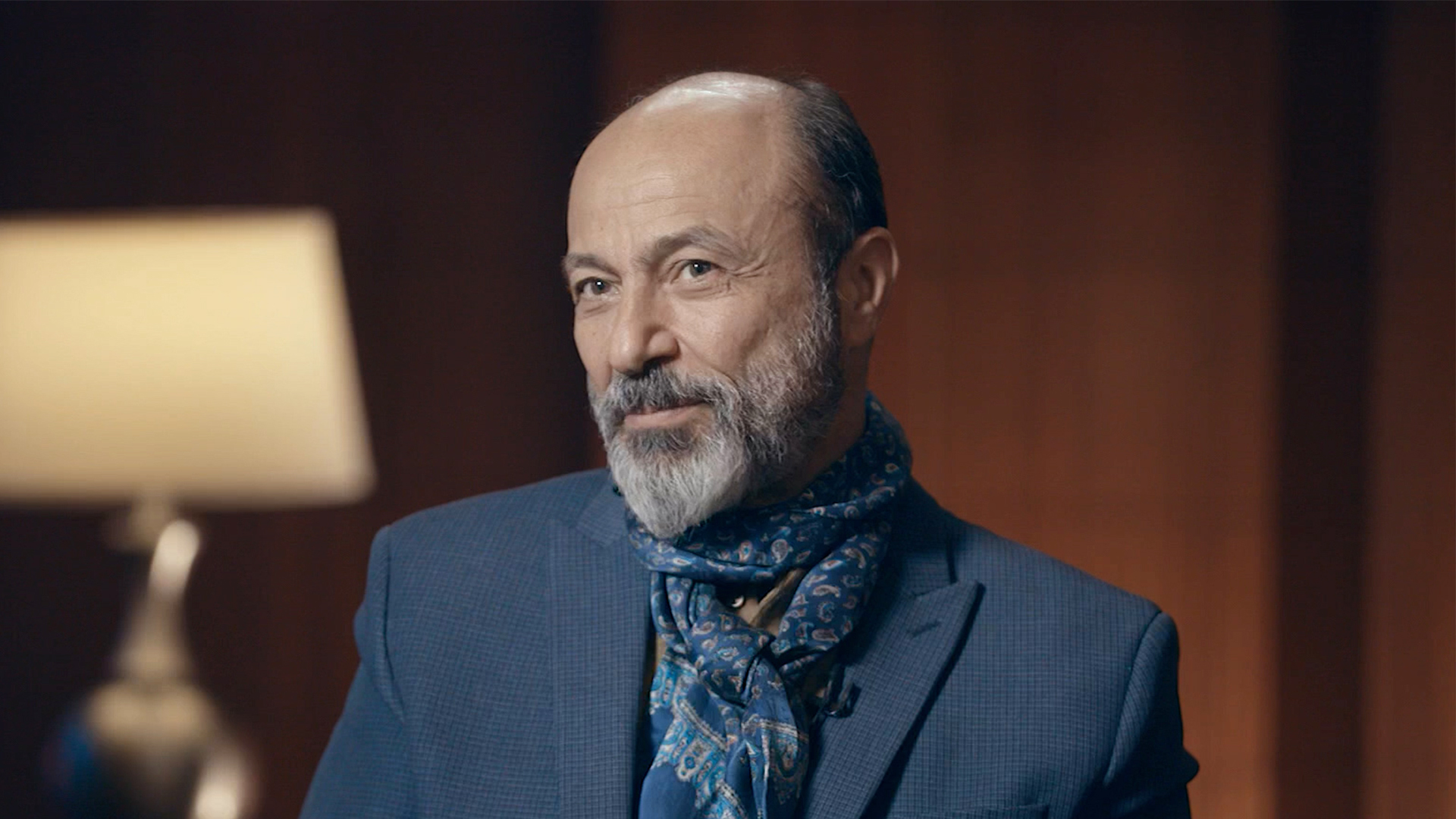Despite his respected artistic balance in his country and in the Arab world, the Syrian artist Jihad Abdo chose to side with the people in the face of Bashar al-Assad's regime during the Syrian revolution, and he was forced to live as a refugee in America, where he suffered the cruelty of asylum before he could enter the world of Hollywood.
Because of his opposition to the regime, the Syrian artist was forced to flee Syria with a refugee passport, but his emigration to the United States was not furnished with roses, but it was a very difficult journey for him, as he found himself just a number of numbers, to start his life from scratch.
He put his long artistic history behind him, and began looking for another life in America, which began by looking for a job in order to save money because he lost all his financial savings in Syria, so he worked in a flower and pizza delivery service, and worked as a driver in the "Uber" company.
However, the Syrian artist was able to realize his dream and enter the world of Hollywood when the opportunity came to him with German film director Werner Hotzog, who was looking for a person from the Levant who speaks Arabic, so he gave him the role with the well-known American actress Nicole Kidman in the movie "Queen of the Desert".
American opportunities continued on Abdo, and he participated in 3 short films that reached the Oscars, including a movie with actor Tom Hanks and “Towards the Qibla”, a very important movie that revolves around the true story of a Syrian refugee in Jordan, whose wife is diagnosed with cancer and takes the whole family to Switzerland, and after If the wife dies and the refugee husband wants to bury her in the Islamic way, his suffering begins with the European system that does not accept the different person.
The Syrian actor took advantage of his presence in the United States to convey the suffering of the Syrians, and wrote two films about the immigrant person who is forced to leave his country, and wrote a human story about his life related to Syria, America and Romania.
"Syrian alienation"
Despite his success in Hollywood, the Syrian artist and actor remained haunted by the pain of his country, as he stressed - when he was a guest on the "Al-Muqabala" program - the need to produce a "Syrian alienation" similar to the "Palestinian alienation", in order to convey the suffering of Syrians in the camps and areas seek refuge.
However, the Syrian actor - who studied civil engineering in Romania before turning to the field of art and acting - indicated that the absence of funding stands as an obstacle to the production of "Syrian alienation", and the production of serious works that tell the suffering of the Syrian child who stands on the snow barefoot and his clothes are torn, however. He smiles at the camera when you photograph him.
Abdo blames the Syrian and Arab peoples for not believing in the power of cinema, while America conquered the world with Hollywood.
In addition, intellectuals and decision-makers in the Arab world do not realize that cinema and images have a stronger influence than speeches and debates, and a film may be able to change a state's decision.
As he bears the pain of his country and his people, the Syrian artist has a special vision to get out of the current crisis in Syria, as he said that Bashar’s regime has reached a dead end, but there is room for retreat and granting real freedoms to people.” part of the system."
The solution also lies in listening to the demands of the Syrians and making them feel safe and free in everything;
In believing, navigating, studying and thinking.
Abdo said that the Syrians wherever they go take a young policeman inside them, because the regime has implanted him in them, and they should abandon him and go out until they are free in their thinking.

